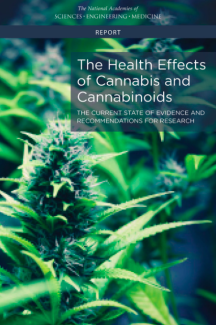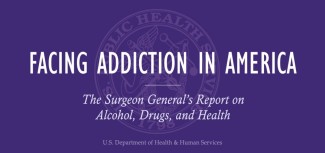Search
Can Drug Prevention Programmes Reduce Substance Use by Participants’ Friends?
Better Working Memory, Less Temptation: Substance Abuse and Neuro-Mechanisms
New research published in the journal Addiction suggests that poor working memory and the inability to control impulses during adolescence are key predictors for future substance abuse. ‘Working memory’ refers to one’s capacity to...
Multiple Fentanyl Overdoses — New Haven, Connecticut, June 23, 2016
Summary
What is already known about this topic?
Fentanyl and its analogs have been substituted for heroin and other opioids, and are usually marketed to persons seeking opioids. Because of fentanyl’s high potency compared with heroin...
The Multiple Health Effects of Marijuana Use
In its first report for almost 20 years, the National Academy of Sciences (NAS), has found the use of marijuana seems to be particularly connected to:
- Breathing problems
- Mental health issues such as psychosis, social anxiety and...
Are People Smoking Less and Less?
According to new findings published in the journal Tobacco Control, more than 53 million people in 88 countries have stopped smoking between 2008 – 2014 because of tobacco control measures.
Statistically, this means that during the 4-year...
Sweet Flavoured Tobacco Products May Influence Adolescent Smoking Habits
Younger people consider flavoured variations of tobacco products, for example, cigarettes and e-cigarettes less harmful and more appealing, according to a recent study conducted by researchers at the University of North Carolina Lineberger...
The Impact of Prevention Interventions in Early Childhood
New research coming out of the University of Buffalo Research Institute on Addictions points to evidence which seems to suggest that an effective way of preventing drug and alcohol use by teenagers is to begin substance abuse education in...
Combating Alcohol Misuse: Soldiers and the Fight against Addiction
New research published in the Journal of Consulting and Clinical Psychology argues that telephone-based interventions seem an effective way of helping members of the military overcome alcohol addiction. The study demonstrates that such a...
Facing Addiction in America: The Surgeon General's Report on Alcohol, Drugs, and Health
U.S. Surgeon General Vivek Murthy released a seven-chapter report covering all forms of drug and alcohol addiction, including public policy recommendations for prevention and treatment. The Surgeon General's Report on Alcohol, Drugs, and...
Smoking and Depression: What's the Relationship?

Almost 20% of American adults smoke cigarettes. Those diagnosed as having a moderate mental health problem are approximately twice as likely to smoke, whereas for those diagnosed as severely ill the risks are roughly three times greater...
Marijuana and Maternity: What Are the Effects?
Four US states currently allow r ecreational marijuana use and twenty-four allow medical marijuana. However, little research has been carried out to uncover the drug’s effect on the development of human embryos if smoked or consumed in...
ecreational marijuana use and twenty-four allow medical marijuana. However, little research has been carried out to uncover the drug’s effect on the development of human embryos if smoked or consumed in...
Opioid Abuse Linked to Heroin Use
New research published in the journal Addictive Behaviors has found the likelihood of 18- to 34-year-old nonmedical prescription opioid users having a prescription opioid use disorder has increased between 2002 – 2014. More specifically...
Identifying At-Risk Personalities
A new substance abuse prevention programme called Preventure uses personality tests to identify children most at risk of indulging in harmful drug-taking behaviour. The traits it has identified amongst at-risk children include: sensation...
Higher Numbers Getting High
Marijuana use amongst adults in the United States is increasing. A study of over half-a-million people carried out between 2002 – 2014 and subsequently published in The Lancet suggests that this is because fewer perceive the drug to be...
Is Mass-Media Effective for Drug Prevention?
Mass-media can be a great means for sharing knowledge and information. A study recently published in the British Medical Journal (BMJ) aimed to determine whether such channels are successful in reducing the intention to use, and the...
Addiction as a Brain Disease
Even though scientific advances over the past decades have supported the concept of addiction as a brain disease, skepticism remains. Recent research has aimed to reinforce the link between addiction and brain functions and broaden the...
Share the Knowledge: ISSUP members can post in the Knowledge Share – Sign in or become a member

